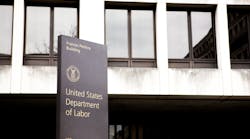Employees abuse the Family and Medical Leave Act (FMLA) so frequently that many employers call it the "Fridays and Mondays Leave Act" (you can even buy a coffee mug emblazoned with those words).
In 2014 there was a 26% rise in FMLA lawsuits for a total of 1,108, which attorney Barbara Hoey of Kelley Drye & Warren LLP calls "a bit startling" because in 2013 there were only 877 suits and in 2012 just 291. But the lawsuits are just the tip of the iceberg, Hoey explains.
"In my practice many clients are experiencing an epidemic of FMLA claims, especially claims by employees that they need intermittent FMLA leave," she says. "This often is a contagious illness which will infect an entire department or a group, as it seems that once one employee finds out about and is certified for FMLA, other co-workers will follow, resulting in multiple employees in one department who are all certified for FMLA leave."
Jeffrey Nowak, an attorney with the firm of Franczek Radelet PC, offers step-by-step advice for employers to follow to stem FMLA fraud.
First, determine if the employee has given proper notification, Nowak recommends. If it's an absence that doesn't trigger the FMLA, you can resort to your usual attendance policies. The wrinkle: Employees are not required to cite the FMLA—the employer is responsible for deciding whether the FMLA is involved.
Questions you can ask include whether the employee may be absent for more than three consecutive days. Does the employee suffer from a chronic intermittent condition, or is seeking treatment for a serious medical condition? Is the employee caring for a family member with a serious health condition, or does the employee suffer from pregnancy complications, such as morning sickness?
"You have the right to know why your employee cannot report to work," Nowak says. "If you have concerns about their leave request, don't hesitate to ask more probing questions about why they need the leave." Questions you should ask include:
- The specific reason for the absence.
- What job duties they can't perform.
- Whether they will see a doctor.
- If they have suffered from this condition before and previously taken leave for it and when.
- When they first learned they would need to be absent.
- Their expected return date, or time if less than a day.
Requiring employees to make their request for leave in writing tends to deter attempts to game the system, according to Nowak.
Make sure to enforce your usual call-in procedures. Excepting unusual circumstances, employers may deny FMLA leave if the employee doesn't call in. "Not nearly enough employers utilize this tool, even though they should," Nowak notes.
For example, if you require that employees call to report an absence one hour before their shift starts and they don't, you can deny FMLA leave—and can discipline the employee—except in unusual circumstances.
"Medical certification is one of the best tools to combat FMLA abuse. So use it," Nowak stresses. If an employee has taken FMLA leave before, recertification is an option. Do they have a pattern of absences that occur on Mondays and Fridays? Is the absence inconsistent with information previously provided on the medical certification form? Has medical certification expired?
If your answer is "yes" to any of these questions, seek recertification immediately, Nowak advises. A pattern of Friday/Monday absences allows you to ask the employee's healthcare provider about whether this pattern is consistent with the employee's need for leave.
Last but certainly not least, Nowak urges conducting a comprehensive audit of your FMLA policy, procedures and use of leave to ensure that they are up to date, that the best strategies are being deployed to combat abuse, and that your FMLA administration is on top of all the issues.



